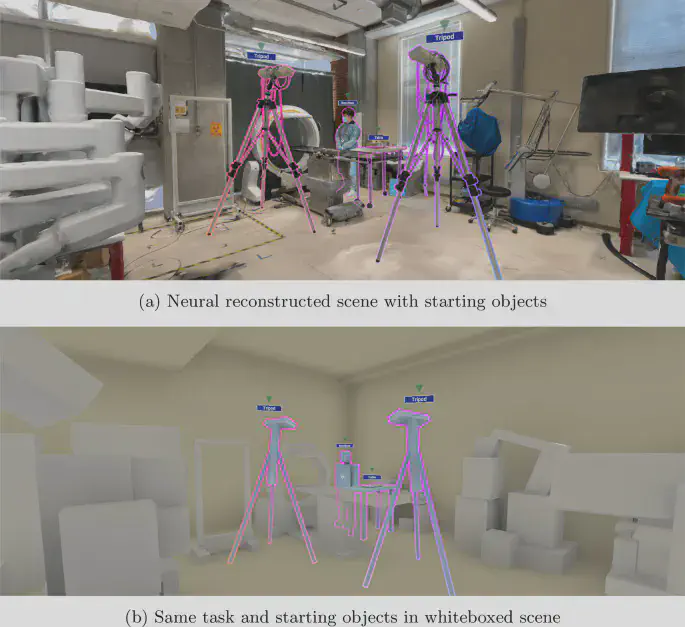Neural digital twins: reconstructing complex medical environments for spatial planning in virtual reality
 Reconstructed mock operation room and whiteboxed reconstruction as comparison
Reconstructed mock operation room and whiteboxed reconstruction as comparisonAbstract
Purpose Specialized robotic and surgical tools are increasing the complexity of operating rooms (ORs), requiring elaborate preparation especially when techniques or devices are to be used for the first time. Spatial planning can improve efficiency and identify procedural obstacles ahead of time, but real ORs offer little availability to optimize space utilization. Methods for creating reconstructions of physical setups, i.e., digital twins, are needed to enable immersive spatial planning of such complex environments in virtual reality.
Methods We present a neural rendering-based method to create immersive digital twins of complex medical environments and devices from casual video capture that enables spatial planning of surgical scenarios. To evaluate our approach we recreate two operating rooms and ten objects through neural reconstruction, then conduct a user study with 21 graduate students carrying out planning tasks in the resulting virtual environment. We analyze task load, presence, perceived utility, plus exploration and interaction behavior compared to low visual complexity versions of the same environments.
Results Results show significantly increased perceived utility and presence using the neural reconstruction-based environments, combined with higher perceived workload and exploratory behavior. There’s no significant difference in interactivity.
Conclusion We explore the feasibility of using modern reconstruction techniques to create digital twins of complex medical environments and objects. Without requiring expert knowledge or specialized hardware, users can create, explore and interact with objects in virtual environments. Results indicate benefits like high perceived utility while being technically approachable, which may indicate promise of this approach for spatial planning and beyond.
Presented at IPCAI 2024 in Barcelona. See the video below for a quick visual introduction.